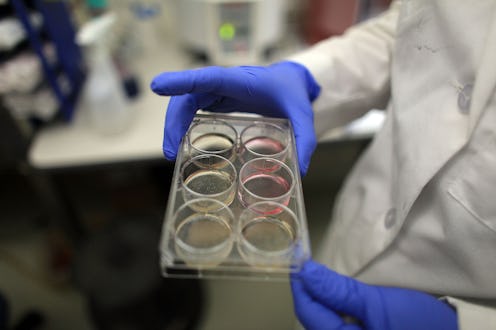News
Milestone Agreement in Genome Research
A Baltimore family has reached an agreement with medical researchers regarding the use of cells from the family's matriarch who died of cervical cancer 62 years ago.
Shortly before her death, doctors removed tumor cells from Henrietta Lacks. Turns out Lacks' cells possessed a special trait that allowed them to grow and thrive in a lab setting, something no human cells had accomplished before.
The cells were kept and disseminated widely for use in more than 74,000 studies including research on cancer and in vitro fertilization and vaccines, making them the most widely used cells in the world. But it was all done without the consent of the Lacks family, who found out about the cell research in 1973 after several family members were contacted in hopes of obtaining blood samples in order to study how Henrietta's traits were passed down.
The family raised its largest objection to the use of the cells last March, when the genome of a line of so called HeLa cells was published online by the European Molecular Biology Laboratory. A similar genome project by the National Institutes of Health at the University of Washington was also planned. The Lacks family voiced concerns over whether or not the sequencing would violate the privacy of not just Henrietta's information, but also intrude on the privacy of living relatives.
The Lacks family reached an agreement with the N.I.H. that places the genetic information in its database. Scientists can apply to use the information for research and two members of the Lacks family will sit on the committee that authorizes access.
While the saga of Henrietta Lacks' cells has been more than 60-years in the making, it highlights a problem that will be ongoing. As scientists rely more on genome research to study and treat diseases, conflicts with relatives over privacy issues are inevitable. The Lacks agreement solves the problem for one family but there's currently no broad standard for the privacy issues that are inherent with genome research.
